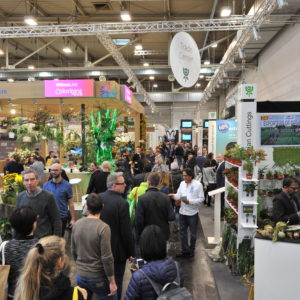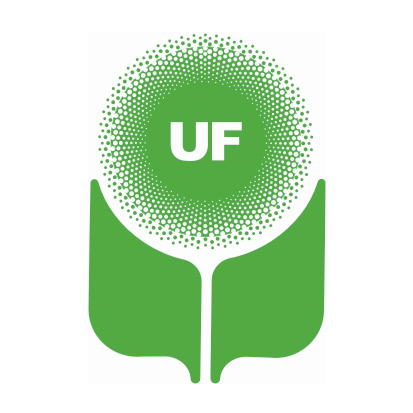Destination Diversity
50 Years of Dedication and Development
Half a century is a long time! The everyday occurrences of our daily life illustrate what a long period that is – and some of you may still remember them. In the year in which the BGI was founded “Satisfaction” by The Rolling Stones and “Help” by The Beatles were the number one hits of the year. Ludwig Erhardt was Federal Chancellor and Heinrich Lübke was the President of Germany. A litre of diesel cost 46 Pfennigs and a litre of heating oil was sold for 22 Pfennigs. Werder Bremen won the German Football Championship and Borussia Dortmund beat Alemannia Aachen 2:0 in the DFB Cup Final. Fashion was dominated by the mini-skirt and the cinemas showed the third James Bond thriller “Goldfinger”. The Germans became more mobile in 1965. By this time most of them owned a car and the car manufacturers satisfied the request for increased mobility with estate-cars. Ford, Opel and VW introduced their estate-cars “Turnier”, “Caravan” and “Variant”, which became very popular not just with families but also with tradesmen.
When the Association of the German Flower Wholesale and Import Trade (BGI) saw the light of day in Düsseldorf in 1965, the sector had been relatively well established in a Germany earmarked by the “economic miracle”; how-ever it was still in a developing phase. The average monthly wage in Germany was 568.– Deutsch Mark (DM), which was enough for Germans to start to buy cut-flowers and indoor plants again, because they wanted their homes to look homely. Pretty soon Germany became the most important country for the flower market – and it still is today. In the mid-sixties the overall turnover of flowers and plants was below 1 bn DM.
Declining domestic production
In 1965 the level of self-sufficiency for flowers and plants from organic production was at about 65 % with a declining tendency. The number of cut-flowers and potplants imported to the German market from various countries was constantly growing. Even in those days the most important country was The Netherlands with a 58 % import-share, followed by Italy (28 %), France (3 %), Spain (1 %) and Israel and South Africa with 1 % each. However, compared with today’s figures the import value was relatively low. The Dutch share had a merchandise value of just 164 million DM.
Back then, the BGI was worried about the decline in the supply with products from domestic production. According to the people in charge at the BGI the way out of that miserable situation was “that the producers work according to the wholesalers’ requirements. After all the wholesalers are the customers. This request includes that the producers supply the wholesalers with a concentrated product range, which has not been the case before.” Furthermore, the BGI found fault in the fact that some producers sell their products themselves and thus supply the wholesalers with merely medium or even bad quality products. The BGI also criticised the origin neutral advertising, which later on in the early 70ies was even intensified by the new CMA. In the medium and long run the BGI requested that, in addition to the consumer advertising, the producers are to carry out wholesale promotion “in order to lead wholesalers away from the foreign products and thus convince them of the quality and the good product range of domestic products.”.
The “Flying Dutchmen“
In the BGI’s early years the biggest problem, if not a plague, were the so called Flying Dutchmen: “There are Dutch merchants who come to Germany in their lorries and bargain away their flowers. These flying Dutchmen don’t buy their flowers at the Veiling (flower auction), but directly from the producers. The Dutch producers accept a modest price, because they can hereby generate black money and very often Dutch gardeners are highly indebted. Then the flying Dutchmen come to Germany with no specific purchase orders and sell their flowers to German retailers at a much lower price than usual. Should they not have managed to sell all their flowers to retailers, they then stops at the next corner and sell the rest straight from the back of the lorry at bargain prices.”. In this context BGI officials were also worried about Italy, because Italian exporters had begun to shift from transporting by rail to lorries. Thus, the BGI was afraid that this change could show the same effects as the flying Dutchmen.
The times are changing – fortunately!
Today’s BGI can hardly be compared with the association in its early years. The fear of the Dutch – and not just the flying ones – has changed into an intensive cooperation. Currently the BGI and their Dutch partner association VGB carry out EU-sponsored projects, because they have clearly recognised that “together” is the keyword for the future. Furthermore, the BGI of 2015 maintains excellent contacts with Italy. Only just last autumn the BGI potplants wholesalers carried out an information trip to Sicily and the BGI managing director had been invited by the Ligurian Minister of Agriculture to hold a lecture for Ligurian whole-salers and producers.
The BGI has become international by and large. The latent protectionism of the early BGI years has soon yielded to an open approach. At its 50th anniversary the association is internationally networking and represented in important global committees. The BGI is a board member of the world association Union Fleurs and the BGI managing director Frank Zeiler heads an EU-committee. Generally speaking, the BGI is wielding influence in the EU. For instance, Frank Zeiler is a member of the working group for flowers and plants at the EU Commission, member of the advisory board for promotion and public relations in the agricultural sector at the European Commission as well as a registered expert for flowers and plants with the EU Commission.
Since 2008 the president of the BGI is the native Dutchman Jan Roelofs – who would have thought that 50 years ago?! However, way back in 1965 no one could have imagined that the general turnover of cut-flowers and potplants in the year 2014 would have risen to more than 8 bn. Euros, i.e. 16 bn. DM – or that Dutch and Italian companies would be associated members of the BGI.
Times, people and things change, and that’s a good thing! The BGI in its current shape is more modern, open and also more global than ever before. That is the only way an association is able to meet its members requirements and fulfil future challenges successfully.
Today the BGI is 50 years young! The fact that the association has been able to develop so positively is due to its members and many enthusiastic people, who were always prepared to accept responsibility and engage themselves in the board and thus actively contribute to the development of the BGI. Some BGI members are members of the early years, others have just joined recently and others again are associated members. They all contribute to the active and innovative future of the BGI and thus enable the association to meet all requirements of the green sector.
Presidents of the BGI
| 1965 – 1967 | Fritz Döttling |
| 1967 – 1975 | Alfred Hopmeier |
| 1975 – 1977 | Karl Jacob Heinrich Peters |
| 1977 – 1978 | Eberhard Gumz |
| 1978 – 1991 | Hans Georg Dünnebacke |
| 1991 – 1999 | Romano Semeria |
| 1999 – 2008 | Gerhard Klümpen |
| 2008 – 2016 | Jan Roelofs |
| 2016 – 2021 | Norbert Engler |
| ab 2021 | Vom Präsidial zum Teamsystem. Seit 2021 steht beim BGI e.V. ein Vorstandsteam an der Spitze. |

